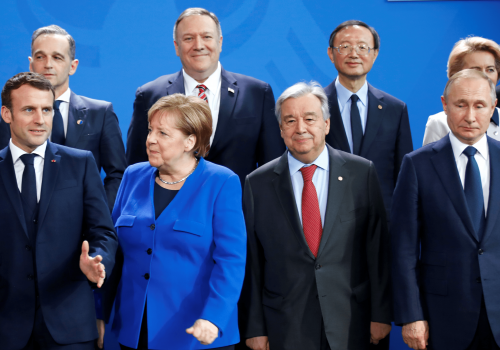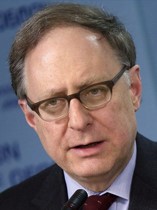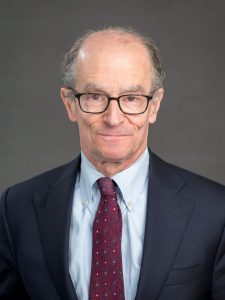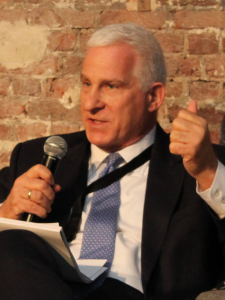A new report by Ambassador Daniel Fried and Ambassador Alexander Vershbow challenges conventional US foreign policy thought on how Western actors should engage with Russia. US-Russia relations are currently at their lowest point since the early 1980s, when the Soviet Union’s Leonid Brezhnev clashed with the Ronald Reagan administration. Since then, American foreign policy has largely continued to seek to attract allies through its leadership of an open and prospering democratic system, a strategy that Moscow increasingly views as a threat to its interests, particularly in its neighborhood. This approach has led Western leaders to engage with a stagnating kleptocracy that starts wars with its neighbors, violates human rights, and tramples on international norms.
The report offers a fresh series of policy guidelines to set a new trajectory for Western engagement with Russia. The authors argue that while some experts recommend that the West deal with Russia “as it is,” it might be more constructive to base Western relations with Moscow on a vision of gradual progress toward a freer, more democratic Russia that can grow into a stable international actor.
The Future of Russia Foundation’s Maria Logan delivers opening remarks. Ambassador Daniel Fried, Weiser Family Distinguished Fellow at the Atlantic Council, and Ambassador Alexander Vershbow, distinguished fellow at the Atlantic Council’s Scowcroft Center for Strategy and Security, present their findings and arguments on how the West can better respond to Russia’s foreign policy. Dr. Celeste Wallander, President and CEO of the US-Russia Foundation, joins the discussion along with moderator Ambassador John Herbst, director of the Atlantic Council’s Eurasia Center.
RELATED experts

The Eurasia Center’s mission is to promote policies that strengthen stability, democratic values, and prosperity in Eurasia, from Eastern Europe in the West to the Caucasus, Russia, and Central Asia in the East.




